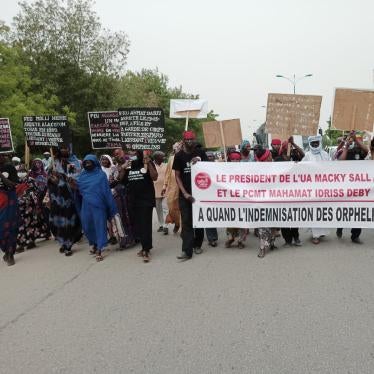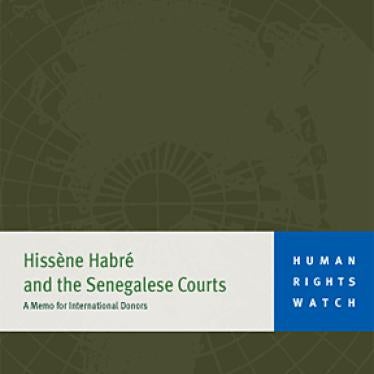A Senegalese prosecutor gave the green light to a judicial investigation of Hissein Habre, the exiled dictator of Chad, accused of torture and crimes against humanity.
"This is a great victory for Habre's thousands of victims who never gave up hope that he would be forced to answer for his crimes one day," said Reed Brody, Advocacy Director of Human Rights Watch, which initiated a private complaint against Habre along with other humanitarian organizations. "With this remarkable step, the prosecutor has ruled that the Senegalese courts have the perfect right to bring a former head of state to justice for atrocities committed in his own country."
In a criminal complaint filed Tuesday in a Dakar court, the groups provided details of 97 cases of political killings, 142 cases of torture and 100 cases of "disappearance" committed by Habre's forces during his 1982-1990 rule. Seven individual Chadians are named as private plaintiffs, along with the Chadian Association of Victims of Political Repression and Crime which represents 792 victims of Habre's brutality. Habre has lived in the Senegalese capital since he fell from power in 1990.
State prosecutor Abdulaye Gaye gave his ruling (requisitoire pour information) this afternoon, and the victims are expected to appear before Judge Demba Kandji of the Dakar Regional Court on Friday.
"My heart is filled with joy," said Suleymane Guengueng, 48, who almost died of dengue fever during two years of mistreatment in Chadian prisons. "I have waited nine years to tell a court of law about the horrors which were inflicted on me and my fellow prisoners."
Among those also expected to appear Friday is Samuel Togoto, 53, whose hands and legs were bound behind his back for so long that he became temporarily paralyzed, and Sabadet Totodet, who was forced to dig mass graves to bury the victims of polical killings by Habre's secret police.
At the same time, the groups expressed serious concern that, although guards have been stationed outside Habre's Dakar villa, Senegal had not yet taken measures to prevent Habre from fleeing the country.
"We are worried that he could leave the country at any minute unless he is arrested," said Brody. "It is clear that Senegal is taking this case seriously, so he has every reason to run away."
The groups stressed Senegal's duty, under the 1984 United Nations Convention against Torture, which Senegal ratified in 1987, to take all necessary steps to assure the accused's presence at trial.
"If Habre flies the coop, Senegal will have a lot of explaining to do," said Brody.
Joining Human Rights Watch in the case are the Dakar-based African Assembly for the Defense of Human Rights (RADDHO), the Chadian Association for the Promotion and Defense of Human Rights, the Chadian League for Human Rights (LTDH), the National Organization for Human Rights (Senegal), the London-based Interights, the International Federation of Human Rights Leagues (FIDH) and the French organization Agir Ensemble pour les Droits de l'Homme.







